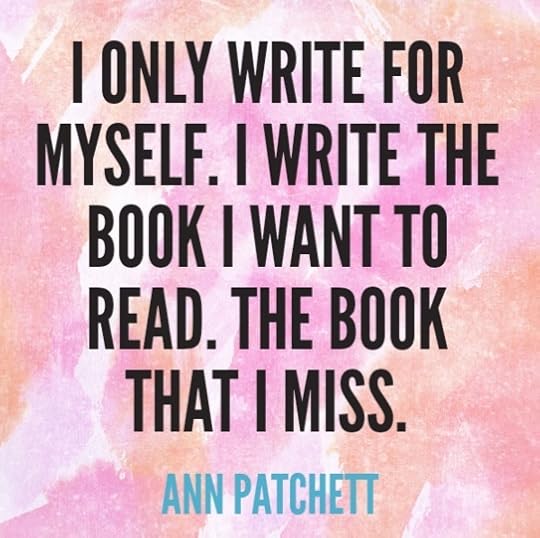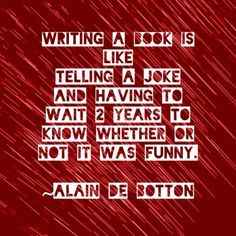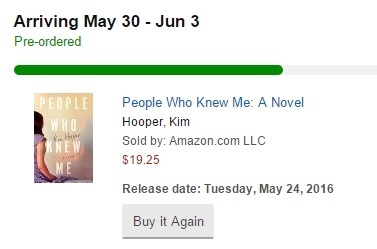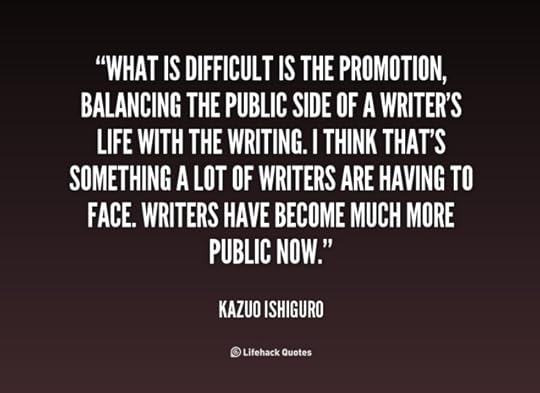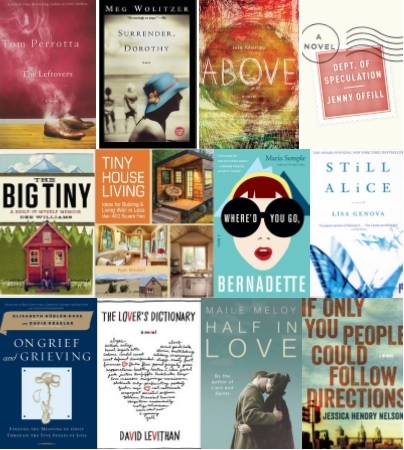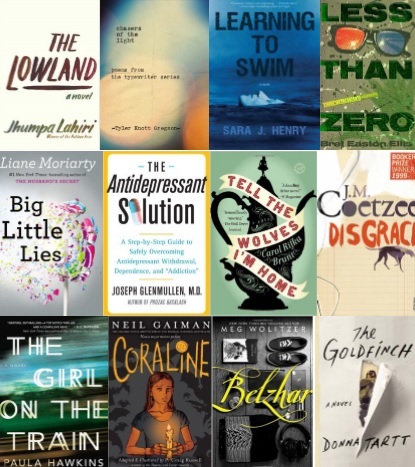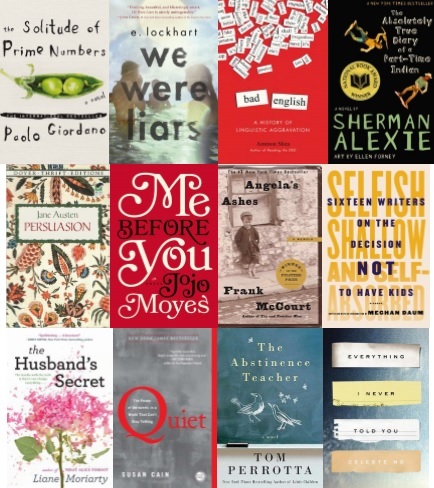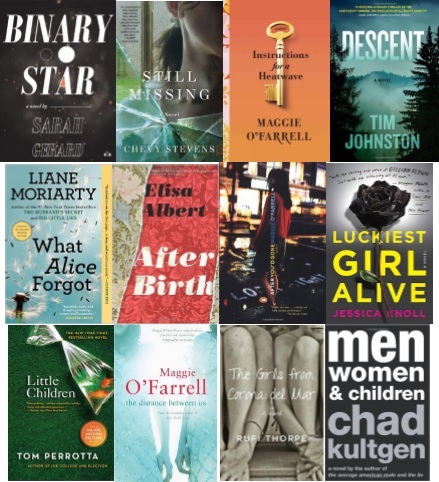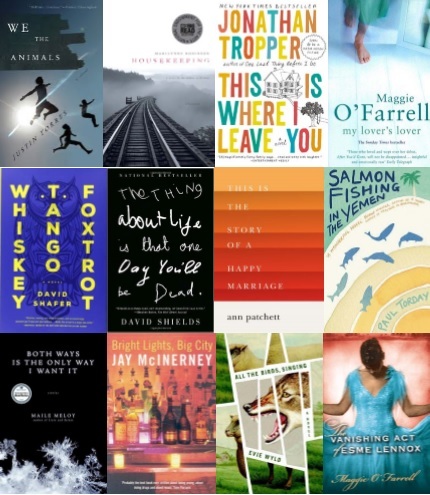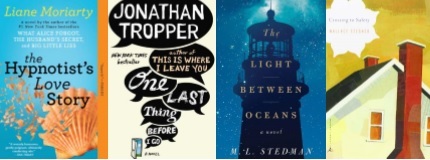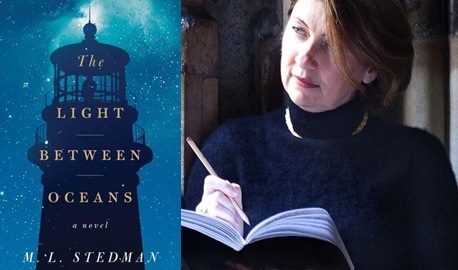Kim Hooper's Blog, page 37
March 7, 2016
My thoughts less than 3 months from publication
The other day, I was talking to a friend about the expectations I have for my book. Which are none. Seriously, none. I am far too naïve to have expectations. This is my first publishing rodeo, folks. I still get a flutter when someone posts an advance review on Goodreads, thinking, “Oh my god, people are actually reading it?” Yes, the mere fact that people besides my relatives are reading the thing is a daily shock and, frankly, enough of a reward.
As the publishing date looms closer, I have started to worry about how the book will be received. I thought I was much better at the not-caring-what-people-think thing, but apparently I have not evolved much past my junior high school years. When you write a novel, they (the experts on such things) tell you not to worry about anything but the story. And I’ve done that with every novel I’ve written. And it was easy because I never got to this point of actually putting the story out into the world for everyone to judge. Now that I’m at this point, I’m feeling suddenly very shy and a little tiny bit terrified. My publicist is currently setting up some local launch events for me and just thinking of them makes my palms sweat.
With the launch date on the horizon (May 24! Ah!), I’ve found myself prematurely preparing for criticism and, because I’m a masochistic lunatic, questioning my overall talent as a writer. I keep reading great books, books that stop me in my tracks and make me think, “My writing is nowhere near this level!” Panic ensues. I’m so glad I recently read Ann Patchett’s This is the Story of a Happy Marriage because her words give me great comfort:
“Forgiveness. The ability to forgive oneself. Stop here for a few breaths and think about this because it is the key to making art, and very possibly the key to finding any semblance of happiness in life. Every time I have set out to translate the book (or story, or hopelessly long essay) that exists in such brilliant detail on the big screen of my limbic system onto a piece of paper (which, let’s face it, was once a towering tree crowned with leaves and a home to birds), I grieve for my own lack of talent and intelligence. Every. Single. Time. Were I smarter, more gifted, I could pin down a closer facsimile of the wonders I see. I believe, more than anything, that this grief of constantly having to face down our own inadequacies is what keeps people from being writers. Forgiveness, therefore, is key. I can’t write the book I want to write, but I can and will write the book I am capable of writing. Again and again throughout the course of my life I will forgive myself.”
Yes, yes, yes. I wrote the best book I could. It’s my debut and I’m sure my future books will benefit from the learnings of this one. It’s a solid story, but I’m under no illusion that everyone will love it. The main character is controversial and flawed and people may hate her (and, thus, the book). [On a side note, I’ve always found this criticism kind of strange. My sister said, “That’s like saying, ‘I liked Silence of the Lambs, except for that creepy Hannibal Lecter.'”] My writing is good, but I’m not a poet by any means. I wish I had the talent to spend a page describing a blade of grass, but I’m just not that descriptive. I care about characters and dialogue and plot. I write how people speak. Someone said to me the other day, “You must be really good at Words with Friends because you know so many big words,” and I said, “I don’t really know that many big words.” [Another side note: I still don’t know what “QI” means, but I play it at least once every game.]
Elizabeth Gilbert writes on this subject in Big Magic, too. She says there are those who hem and haw over whether one person’s art is “more elevated” than another person’s. Gilbert’s response: Who cares? I’m with her. There is room in this world for all kinds of books. My book is what it is. It’s commercial fiction. It’s not a literary masterpiece. It’s a good story. I think it will have wide appeal, but it definitely won’t appeal to everyone. At some point, preferably before May 24, I’m going to have to accept that.
The post My thoughts less than 3 months from publication appeared first on Fiction Writing Blog.
February 29, 2016
Enough with the artistic plight
This past weekend, I was having another bout of self-doubt (hey, I rhymed!) as I worked on a new novel. I started whining to my husband about how I don’t know where this book is going or if I can pull off the story and emotion I want. He said, “You’ll figure it out. Just keep going.” This type of advice usually aggravates me because it implies that writing a book is, like, no big deal. Then I remembered that it really isn’t that big of a deal. It’s just writing. I’m not curing cancer. I probably need to lighten up a little bit.
This section from Big Magic by Elizabeth Gilbert rang true as I was struggling yesterday:
“Every artist complains, so it’s a dead and boring topic. (From the volume of complaints that emerges from the professional creative class, you would think these people had been sentenced to their vocations by an evil dictator, rather than having chosen their work with a free will and an open heart.)… Of course it’s difficult to create things; if it wasn’t difficult, everyone would be doing it, and it wouldn’t be special or interesting.”
Yes! There are times I open my laptop with serious dread. I don’t have an evil dictator, but I do have a drill sergeant and his orders go like this: “You need to write X pages and you need to write them TODAY. RIGHT NOW, actually. Because you’re not going to have any other time this week and then you’re going to lose interest in the story completely and be a loser without a novel in progress.” And I wonder why it’s hard to enjoy the process…
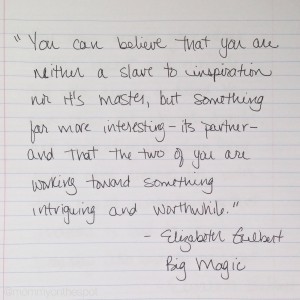
I think there are two ways to try to enjoy the process a bit more:
1. Accept that it’s not always easy. It’s not supposed to be. Embrace the bad days, knowing they are inevitable.
2. Take the pressure off. Like I said, I’m not curing cancer here. The world will go on if I don’t get to page 160. Gilbert talks about this in her book. She makes a daring statement: Art is meaningless. To some, this may be a discouraging thought, but I find it to be a freeing one. (I also find it freeing to know life is finite, so maybe I’m a weirdo).
Gilbert writes:
“My creative expression must be the most important thing in the world to me (if I am to live artistically), and it also must not matter at all (if I am to live sanely).”
It’s a tricky balance between attachment and detachment, passion and apathy. I don’t always get it right, which is why I’m not always sane. But, really, I need to stop with the whining. For my husband’s sake.
The post Enough with the artistic plight appeared first on Fiction Writing Blog.
February 17, 2016
Oh, the anxieties.
I’m shin-deep in writing a new novel and running up against anxieties that always plague me when I start something new. I have regular freak outs, wondering what the hell I’m doing. I doubt myself, thinking on particularly bad days that I have no business trying to write this book. I wake up in the middle of the night with ideas and problems and solutions and random sentences in my head. As I’ve said before, the notes section of my iPhone is fascinating.
You would think I’d learn from previous novel-writing experiences that this is all part of the proverbial process. But every time, the anxieties feel new. And every time, I fight them. Somehow, I think that a true writer, a confident writer, wouldn’t have all these nagging anxieties. It’s only after reading Elizabeth Gilbert’s Big Magic that I started to consider that maybe this is all normal. Maybe it’s even good.
Gilbert is all about accepting the fear that comes with creative pursuit. The fear is inevitable. The trick is to embrace it instead of wasting time chasing it away.
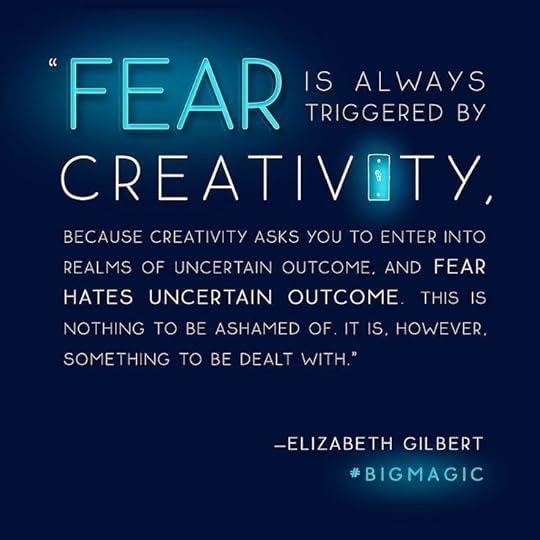
Gilbert identifies specific anxieties that come with her writing process (and I have to think these apply to most writers):
“Ah, this is the part of the process where I wish I’d never engaged with this idea at all.”
“This is the part where I tell myself that I’ll never write a good sentence again.”
“This is the part where I beat myself up for being a lazy loser.”
“This is the part where I begin fantasizing in terror about how bad the reviews are going to be–if this thing even gets published at all.”
“This is the part where I panic that I’ll never be able to make anything again.”
Her conclusion:
“Over the years of devotional work, though, I found that if I just stayed with the process and didn’t panic, I could pass safely through each stage of anxiety and on to the next level.”
The truth is that the anxieties make me a better writer. They create a tension that forces my brain to go into overdrive. It’s in that overdrive state that I write well. It’s like I’m trying to prove the negative voice in my head wrong. Or something. If there were no anxieties, it wouldn’t be exhilarating. It wouldn’t be interesting. It would be rather dull. The anxieties make those wonderful moments of flow–when the book seems to write itself–that much better, magical even. Now if only I could let this comfort me when I wake up at 2 am in a panic…
The post Oh, the anxieties. appeared first on Fiction Writing Blog.
February 8, 2016
Writing when you have a day job
I’ve had a rush of inspiration lately. I want to write, write, write all the time and I can’t, can’t, can’t.
Here’s where I’m at, fiction-wise: PEOPLE WHO KNEW ME comes out on May 24. I’ve had some marketing assignments related to the launch that are keeping me busy (more on this soon). While I was waiting for edits to my book a while back, I started a novel and I finished a first (rough) draft of that novel in November. Then I got a new idea for another novel a few weeks ago, and I’ve been playing with that one (and getting increasingly into it). I figure I may as well crank out as much new stuff as I can and then my publisher can tell me what they want for my second book (if they offer a second book deal. Fingers and toes crossed).
In a fantasy world, the entirety of my days would revolve around my fiction writing. But, unfortunately, I live in the real world. And I have a day job.
Thankfully, I like my day job. It suits me. But it’s full-time. And very busy. That means ideas swim around in my head all week, but I can’t do anything substantial with them until the weekend (goodbye, social life). I am constantly scribbling thoughts on Post-its so I don’t forget them. You should see the notes in my phone. They are bi-zarre. This is one from the other day: “Something about Korea. She finds photo in drawer.” It makes sense, trust me.
Lately, I’ve found myself lamenting the lack of time quite often. Too often. I’m becoming bitter about this lack of time, which is not good. I just read Big Magic: Creative Living Beyond Fear by Elizabeth Gilbert and she dedicates a good chunk of the book to talking about why day jobs aren’t just necessary, but are beneficial to the creative person. She says she published 3 books before hitting it big with Eat, Pray, Love and finally quitting her day jobs. And, even then, she was hesitant. She writes, “I never wanted to burden my writing with the responsibility of paying for my life.” And: “I’ve always felt like this is so cruel to your work–to demand a regular paycheck from it, as if creativity were a government job or a trust fund.”
I relate to this so much. Frankly, it terrifies me NOT to have a day job. I love financial security almost as much as I love writing fiction. As Gilbert says, “Financial demands can put so much pressure on the delicacies and vagaries of inspiration.” Right now, if inspiration isn’t flowing, it’s no big deal. I’m not relying on it for my livelihood. If I didn’t have a day job, if writing was my income stream, that wouldn’t be the case. So, while squeezing in writing time with a day job is stressful, the pressure of writing fiction for money would be way more stressful.
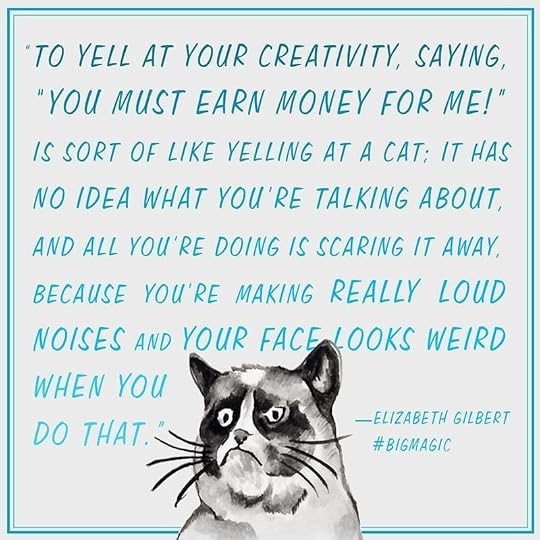
Gilbert reminds us that, “You can always make your art on the side of your bread-and-butter job.” I’ve known this to be true (I’ve written several novels while working full-time), but it’s still nice to hear it from someone who is truly successful. Sometimes, I assume “real” writers would say to dedicate every hour to stories. It’s a relief to hear Gilbert acknowledge that, for most of us, that isn’t possible.
The truth, according to Gilbert, is this: “The vast majority of people have made their art in stolen moments, using scraps of borrowed time.”
Scraps of borrowed time–that’s the perfect way to describe my current writing life. I do my best to cobble together 30 pages per week. I hardly ever have a solid chunk of creative time. John Updike said you can achieve a lot, writing-wise, with just 1 hour a day. I try to get a full hour, but it’s usually ten minutes here, twenty there. I make use of whatever free minutes present themselves. I type up sentences while dinner is baking, I wake up early enough to get out a few paragraphs, I go through stacks of those damn Post-its. I’ve learned to stop waiting for the “perfect” time to write. When you’re busy, there is no perfect time.
Gilbert confirms this is all normal. According to her, I can be a “real” writer even if I have a ton of other obligations in my life. Phew.
I highlighted this section, and dog-eared the page too, for good measure:
“I once read a heartbreaking letter that Herman Melville wrote to his good friend Nathaniel Hawthorne, complaining that he simply could not find time to work on his book about that whale, because, ‘I am so pulled hither and thither by circumstances.’ Melville said that he longed for a big, wide-open stretch of time in which to create (he called it ‘the calm, the coolness, the silent grass-growing mood in which a man ought always to compose’), but that sort of luxuriousness simply did not exist for him. He was broke, he was stressed, and he could not find the hours to write in peace.”
“I do not know of any artist (successful or unsuccessful, amateur or pro) who does not long for that kind of time. I do not know of any creative soul who does not dream of calm, cool, grass-growing days in which to work without interruption. Somehow, though, nobody ever seems to achieve it. Or if they do achieve it (through a grant, for instance, or a friend’s generosity, or an artist’s residency), that idyll is just temporary–and then life will inevitably rush back in. Even the most successful creative people I know complain that they never seem to get ALL the hours they need in order to engage in dreamy, pressure-free, creative exploration. Reality’s demands are constantly pounding on the door and disturbing them. On some other planet, in some other lifetime, perhaps that sort of peaceful Edenic work environment does exist, but it rarely exists here on earth.”
So I shouldn’t complain, basically. I should suck it up, basically. I should be grateful that I have a day job that affords me financial security so I have the mental freedom to write, basically. Someone remind me of this when I’m pulling my hair out trying to finish a novel while in the middle of a product launch at work. Thanks.
The post Writing when you have a day job appeared first on Fiction Writing Blog.
February 1, 2016
Writing beyond fear
I’ve started working on a new thing (I’m hesitant to call it a novel yet) and I had a mini breakdown about it this weekend. I’m having all these “Can I pull this off?” thoughts. I’m overwhelmed by the task of piecing together the story, which has come to me in disjointed segments. It’s like a puzzle.
Thankfully, I happen to be reading Big Magic: Creative Living Beyond Fear by Elizabeth Gilbert. I tend to pick up just the right books at just the right time (I think that’s what Gilbert means by “magic”). Anyway, it’s important to notice that the title is not “Creative Living Without Fear.” Gilbert talks about how fear is a very normal and natural part of the creative process, and I agree with that. The goal isn’t to write fearlessly, but to write in spite of inevitable fear.
A quote from the book:
“Your fear will always be triggered by your creativity, because creativity asks you to enter into realms of uncertain outcome, and fear hates uncertain outcome.”
Yes. This is where I’m at with this new project. I’m uncertain of where it’s going. Truly, I feel like I’m in over my head. I have to keep reminding myself that isn’t a bad thing.
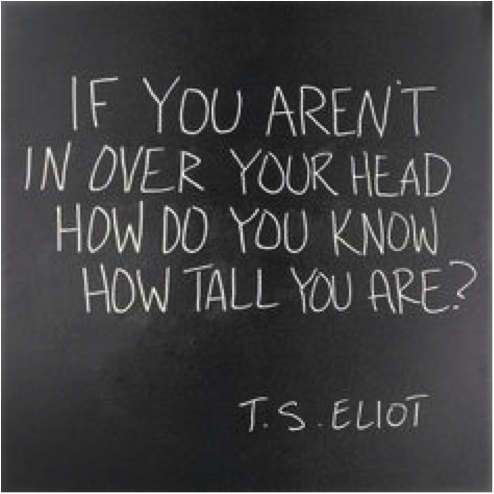
On this subject, author Lee Martin says:
“We should all feel as if we’re in over our heads when we write; that’s how we know we’re writing about something that really matters. So it takes either courage, self-deception, ignorance, or some of all three, to knowingly put ourselves in this position. It takes an endless supply of hope. Writing anything is ultimately an act of faith and love.”
And:
“Eventually, we have to find out how tall we are. We have to jump in, trusting that through craft and courage we’ll find a way to stand up, not to tower over the behemoth, but to look it in the eye, to know we’ve given it the sort of treatment that respects but also contains its strength.”
Continuing the magic, I recently read an article called “Writing Dangerously” by Tom Spanbauer in Poets & Writers magazine. This took a different look at the fear that accompanies writing. This fear isn’t of the “Holy hell, how am I going to accomplish this?” variety, but more of the “This stuff I’m writing is bringing up all kinds of uncomfortable feelings” variety.
Spanbauer writes:
“To write dangerously is to go to parts of ourselves that we know exist but try to ignore–parts that are sad, sore; parts that are silent, heavy. Taboo. Things that won’t leave us alone.”
Fear, of all kinds, is what makes writing exhilarating. Fear is what makes many things exhilarating–roller coasters, love, sky diving. You face it and, sometimes, you get those days of flow, when the story seems to write itself.
Gilbert describes this magic:
“I feel like I am suddenly walking on one of those moving sidewalks that you find in a big airport terminal; I still have a long slog to my gate, and my baggage is still heavy, but I can feel myself being gently propelled by some exterior force. Something is carrying me along–something powerful and generous–and that something is decidedly not me.”
Writers live for those moments. And they almost always come about because of initial fear.
The post Writing beyond fear appeared first on Fiction Writing Blog.
January 24, 2016
Holy sh*t, people are reading my book
So, my publisher (St. Martin’s Press) is doing a giveaway of advanced copies of PEOPLE WHO KNEW ME on Goodreads. There are a couple days left, FYI. This is the second Goodreads giveaway. They did one a little while back and readers are starting to post… GULP … reviews.
A while back, Stephen Colbert interviewed Jesse Eisenberg on his foray into writing and, on the topic of publishing and putting his book out there, Eisenberg said, “I have the competing feelings of ‘I want everybody to read this’ and then…’I hope no one ever reads this.'”
I totally understand this sentiment.
Sharing my work is both exciting and terrifying. Exciting for obvious reasons, terrifying because I am not sure what people will think. I shouldn’t care what people think, right? Alas, I am not that evolved as a human yet. I’m also not evolved enough to avoid reading reviews completely. I’m a new writer and, yes, I’m curious what people think of my writing. I bow down to those who can resist the temptation to read their reviews. At some point, I will need to learn this skill. It’s probably necessary for sanity.
Thankfully, the few Goodreads reviews I’ve gotten so far have been very positive. A few snippets:
“The narrator’s story grabbed me immediately. The story is told from alternating time perspectives, starting with the events that caused the narrator to fake her death and then again starting her new life with her new identity. The characters in this book are developed very well and are very realistic. The life issues that this book deals with are extremely relevant. The author’s writing style is very thoughtful. She makes many random observations about people’s traits and life in general that cause me, the reader, to pay attention to every sentence she writes.”
“Well written story with vibrant characters, interesting premise with believable outcome.”
“I received this book as a Goodreads giveaway. I really liked it. I could not have handled her life as Emily did, but it was very thought provoking. So many ‘what ifs’.”
(Note: These reviews are not written by my friends or my mom. I swear.)
I should probably celebrate these kind words and call it a day on reading reviews. I know the Internet is full of mean people with snarky thoughts. I need to brace myself. I’m comforted that there are at least a few people who think my book is good, worth reading. That gives me warm fuzzies. There have been many times when I thought my books wouldn’t be read by anyone except my husband and my mom, so this whole process is rather surreal and makes me feel very shy and self-conscious. My editor says, “This is not the time to be shy.” Gulp, again. This is going to be a wild ride.
The post Holy sh*t, people are reading my book appeared first on Fiction Writing Blog.
January 18, 2016
Publishing Journey: Why pre-orders are SO important
In my last post, I wrote about how I really don’t want to tell you to pre-order my book. I feel weird doing that. So, instead, I’m going to explain why pre-orders are so important and let you draw your own conclusions. Sound good? Good.
It’s like this: Pre-ordering an author’s book is pretty much the best thing you can do to support them. Here’s why:
If publishers see that a book has a lot of pre-orders, they’re likely to increase the print run to meet the anticipated demand. If they increase the print run, they may increase their marketing efforts to sell all the copies
If a bookstore (online or brick-and-mortar) gets a bunch of pre-orders, they’ll realize their customers are interested in the book and they might stock more of the book when it’s released. Rumor has it that for every copy of a book that a customer pre-orders on Amazon, Amazon orders 3 copies
For an author whose book might have a chance at making the New York Times bestseller list (a girl can dream), pre-orders can make a huge difference. The bestseller lists are compiled based on weekly sales data, and pre-orders count toward the first week’s sales
Basically, pre-orders build buzz and buzz is good. Buzz gets publishers and booksellers to pay more attention.
And then there’s the bigger picture: Pre-orders can help convince the publisher to say yes to the author’s next book. For me, this is what’s most important. I want to write books for years to come. I have so many stories in me. For me, a pre-order is a vote in my favor for a future in this publishing thing.
To anyone who has already pre-ordered my book, THANK YOU! I can’t tell you how much that means to me. I have no idea how many pre-orders I have in total so far, but every one counts. If you want to pre-order, you can do so here or here or here. Someone asked me the other day if I pre-ordered my own book. You bet your ass I did:
Thanks to everyone for the support so far! I can’t wait for May 24.
The post Publishing Journey: Why pre-orders are SO important appeared first on Fiction Writing Blog.
January 6, 2016
Why I don’t want to tell you to pre-order my book
My book releases in less than 5 months. It seems like just yesterday that it was a year off. The other day, my friend said, “You should start telling people to pre-order it” (because pre-orders are very important, which deserves a post in itself. Stay tuned). I said, “Um, I can’t tell people that.”
I am really, really, really uncomfortable with self-promotion. Overall, I’m a pretty private person. Twitter is like pulling teeth for me. I’ve deactivated my Facebook account many times. I always come back for the pet pictures, but I don’t share much myself. I’ll post about books I like or share links to funny things, but that’s about it. If I express a personal opinion, I’m probably drunk. Fact: My husband and I have never communicated with each other via Facebook. Ever.
Thankfully, St. Martin’s Press will have an in-house publicist working on my behalf, and I’ve also hired an outside publicist to beef up efforts. But, still, I should probably get better at, like, telling people I meet that I’m an author with a book coming out on May 24. On New Year’s Eve, my husband and I went to this local winery and struck up conversation with the lady serving the flights (it’s always good to strike up conversation with people serving you wine). It took me several tasters before I divulged that I was a writer. When she asked of what, I muttered the title of my book while staring at my feet. Sometimes I think I have problems.
In the latest issue of Poets & Writers magazine, there is a great essay titled “Brand You” by Frank Bures. He mentions that many writers have been great self-promoters, dating back to 440 BCE when Herodotus sold his Histories to wealthy patrons at the Olympics, or 1887 when Guy de Maupassant flew a hot-air balloon featuring the name of his latest short story. Even Walt Whitman got in the game: He wrote anonymous reviews of his own work, declaring things like, “An American bard at last!”
What’s different today–and Bures touches on this in his essay–is that EVERYONE is promoting something. Bures states:
“Today, it’s accepted that anyone with a pulse and a keyboard can and should promote anything that comes to mind. As a result, most of us are drowning in a promotional tsunami. It can feel like a crushing weight, like social media has become a giant pyramid scheme in which we are all selling some idea of ourselves, even as we struggle to believe our own marketing.”
Yes! This is the issue for me–the tsunami. I find it very overwhelming. I don’t like to be overcome by it, so I find it difficult to contribute to it.
Bures goes on:
“There are plenty of writers for whom self-promotion comes as naturally as breathing. For them, it doesn’t seem to pose any dilemma. But for the rest of us it does. Speaking only for myself, one of the great gifts of writing is that it lets me escape the tyranny of myself, the smothering of self-consciousness.”
And social media is all about self-consciousness. It’s all very “look at me.” In a way, that fights creativity, which is very “don’t look at me, I’m trying to hide in this cave and figure out what I want to write without worrying what you think.” As Bures says, marketing and writing are two endeavors at opposite ends of a spectrum.
I guess this blog is self-promotion, but it doesn’t feel that way. It’s mostly a place for me to collect thoughts on writing. It’s a selfish pursuit, really. I enjoy writing blog posts. I don’t enjoy sharing them on Facebook and Twitter, but I do. I bite that bullet. But I’m still probably going to stare at my feet if you ask me too much about my book coming out. It’s not that I don’t think the book is good. It’s a good book. I just want it to exist separate from me, as a person, if that makes sense. It will have a life of its own. People may love it. People may hate it. Ultimately, that has nothing to do with me (or my extremely sporadic tweets).
The post Why I don’t want to tell you to pre-order my book appeared first on Fiction Writing Blog.
December 31, 2015
Books I read in 2015
One of my resolutions this year was to read more books than I did last year. Last year, I read 26 books, which is a book every couple weeks. This year, I read 64 books, which is more than a book a week. Not bad for me. There are lots of people who read hundreds of books a year. I do not know how they do this.
Here are the books I read this year (in the order I read them because I’m weird like that):
My favorites:
The Light Between Oceans by M.L Stedman
Dept. of Speculation by Jenny Offill
The Lover’s Dictionary by David Levithan
The Leftovers by Tom Perrotta
Little Children by Tom Perrotta
Where’d You Go, Bernadette? by Maria Semple
Half in Love by Maile Meloy
Both Ways is the Only Way I Want It by Maile Meloy
Chasers of the Light by Tyler Knott Gregson
The Lowland by Jhumpa Lahiri
Big Little Lies by Liane Moriarty
The Husband’s Secret by Liane Moriarty
What Alice Forgot by Liane Moriarty
The Hypnotist’s Love Story by Liane Moriarty
The Girl on the Train by Paula Hawkins
The Goldfinch by Donna Tartt
The Absolutely True Diary of a Part-time Indian by Sherman Alexie
Me Before You by Jojo Moyes
Selfish, Shallow, and Self-Absorbed: 16 Writers on the Decision NOT to have Kids by Meghan Daum
Quiet: The Power of Introverts in a World That Can’t Stop Talking by Susan Cain
Everything I Never Told You by Celeste Ng
Instructions for a Heatwave by Maggie O’Farrell
After You’d Gone by Maggie O’Farrell
Descent by Tim Johnston
After Birth by Elisa Albert
The Girls From Corona Del Mar by Rufi Thorpe
Men, Women, and Children by Chad Kultgen
This is Where I Leave You by Jonathan Tropper
This is the Story of a Happy Marriage by Ann Patchett
Bright Lights, Big City by Jay McInerney
All the Birds, Singing by Evie Wyld
If you’re interested, you can check out my book ratings and reviews on my Goodreads page.
The post Books I read in 2015 appeared first on Fiction Writing Blog.
December 28, 2015
Spotlight on: M.L. Stedman
If you haven’t read The Light Between Oceans yet, I highly recommend adding it to your Amazon cart. It came out in 2012, so I’m a bit late to this particular party. Shameful confession: I’m never that excited to read historical fiction. I tend to think the characters are going to talk in their old-timey way and I’m not going to relate. I think I’ll fall asleep, basically. I’ve been wrong on this so many times, but I still have my ridiculous bias. This book may finally convince me to stop putting historical fiction novels at the bottom of my stack.
Usually, when I do these “spotlight on” posts, I choose authors who have written many novels that I’ve read and loved. This is the only M.L. Stedman book I’ve read. This is the only one she’s published (though, you better bet I’ll be first in line for her next one). I was so moved by this novel that I had to investigate Stedman’s writing process and compile some of her wisdom here.
On not sharing details of her personal life (including her first name):
“I like the reader to be free to inhabit fully the world of the book. I think that’s more difficult if the author is effectively standing between the reader and the story—a bit like making a movie and then standing in front of the screen. Promoting the author rather than the work is a fairly recent trend. As to using initials—there’s a very long and respectable history of writers of both genders doing so: T.S. Eliot, P.G. Wodehouse, C.S. Lewis, P.D. James, A.S. Byatt, J.D. Salinger… Things from ‘behind the curtain’ must surely affect readers’ experience, and more importantly, take them out of the story. Details of my life won’t shed any light on the book. Ultimately I think any novel should stand or fall on the words on the page. Every novel effectively begins with the appeal from the writer to the reader: ‘Imagine the following…’ For me, the key is ‘imagine.'” (Source)
“As the book’s not autobiographical, details of my life won’t really shed light on the story for the reader and I’d much rather let readers focus on the book and their own experience of it.” (Source)
On inspiration for the novel:
“I write very instinctively, letting a picture or phrase or voice come into my mind and just following it. For this story the setting turned up first—I closed my eyes and saw a lighthouse, then gradually a woman, and I knew it was a long time ago, on an island off Western Australia. Then a man appeared—the lightkeeper. As I wrote, a boat washed up, with a dead body and a crying baby, so I had to keep writing to see what happened. I didn’t consciously decide to write a book about lighthouses, but I found they provided an incredibly rich metaphor: They betoken binary opposites such as safety and danger, light and dark, movement and stasis, communication and isolation—they are intrinsically dynamic because they make our imaginations pivot between those opposites.” (Source)
On her writing process:
“There really isn’t such a thing as a ‘typical’ writing day for me, except insofar as I only write in the daytime—never at night. I’m rather allergic to rules about writing, and pronouncements such as ‘you must write at least an hour a day’ or ‘you must plot everything in advance’ or ‘do all your research before you write a single word.’ My philosophy is ‘find out what works for you, and do that: Everyone is different.’ So, for example, I wrote this book on my sofa, in the British Library, in a cottage by the beach in Western Australia, on Hampstead Heath, and anywhere else that felt right. I consider it a true privilege to have the opportunity to do what I love.” (Source)
On research:
“One of the few places where Australian WWI veterans “spoke” was in the field diaries and battalion journals written during and shortly after the war. Essentially private records rather than anything to be published commercially, they are truly heartbreaking to read—stories told without self-pity, facts recounted without commentary, and all the more devastating for that. I frequently found myself not just in tears but actually sobbing as I read them, in the otherwise orderly silence of the British Library reading rooms.” (Source)
“I visited the Leeuwin Lighthouse and the Cape Naturaliste Lighthouse, as well as spending time in the Australian National Archives going through the old log books and correspondence of the lightkeepers of the period. I also visited Trinity House in London, which is in charge of UK Lighthouses, and did a lot of research in the British Library. I wrote some of the book there, some of it on my sofa, and some of it in little cottages looking out over the Indian Ocean, down near where I imagine Point Partageuse to be. I found the research completely captivating, and an essential part of bringing that world to life for the reader.” (Source)
“My research very much followed the story rather than leading it.” (Source)
On writers who influence her:
“I’m not entirely sure what it means to say that I’ve been influenced by a writer—I hesitate lest it seem I’m claiming to be in their league. Writers I admire include Graham Greene, because of his beautifully honed prose and fascination with moral struggles; anyone who turns a beautiful sentence—like Cormac McCarthy, Marilynne Robinson, and Anne Michaels; and writers who know what makes people tick: Dickens, Eliot, Salinger.” (Source)
On not planning the story:
“I write ‘from the inside outward’ rather than ‘from the outside inward’, by which I mean that I know lots of people who build the scaffolding first, plotting out their story and structuring it, working it all out, and then sit down to put the bricks together. I never plan what I write – I wait for the story to unfold for me, without demanding to know where it’s going, and I make sense of it later. From the moment the boat washed up on the beach, I had to keep writing to see what happened next, as I had no idea who these people were. And I didn’t know how the story would end until it ended, because there were so many ways it could have gone. I think that has filtered through into the text, because I hear a lot from readers who say they just had no idea what was going to happen next, and kept reading into the wee small hours (one until 5am!) to find out.” (Source)
“I just sit down and make it up. I don’t plan, so it’s not as though I have an outline or structure. It’s an instinctive process. When I start to write I let a picture or sentence or voice come to me.” (Source)
On finding the story:
“The process was like walking into a dark room after having been out in bright sunlight: at first you see nothing and think the room is empty, then little by little, as your eyes adjust, things emerge from the shadows and you see what’s in there. For me, the trick is to stay, just stay. It can be tempting to say, ‘Oh, there’s nothing there,’ but in my experience, if you wait without expectation or demand, there’s always something there that will eventually let itself be seen.” (Source)
On letting characters guide the story:
“The story just emerged from nothingness, and I had no idea how it would end. Equally, until the very end of the book, I didn’t really have a sense of making ‘choices’ about the characters – they were who they were, they did what they did, and those actions carried with them certain consequences: more like physical laws of action and reaction. I felt deeply for them all – not just Tom and Isabel, but even the minor characters, and even when I disagreed with what they did in one circumstance or other.” (Source)
“I had no idea how the story would end until it ended: In one sense, it really could have gone any way. I loved having complete freedom to see where it wanted to go. Because I don’t plot, I didn’t have to contrive a way of getting to a given destination. Having said that, in some ways the ending arose simply from letting the characters be who they were – letting them play out their values and desires.” (Source)
On empathy:
“There’s a great deal to be said for that old expression ‘walk a mile in the other person’s shoes’, don’t you think? I believe that people are born with a strong instinct for good. Of course, views of what ‘good’ looks like differ wildly. But I think it’s usually possible to find compassion for even the most misguided of individuals: that’s different from condoning harmful behavior. It’s just recognizing that the business of being human is complex, and it’s easy to get things wrong. Compassion and mercy allows society to heal itself when we do.” (Source)
On her love of writing:
“I loved writing this book and remember at one stage wondering, ‘If I could do anything in the world, how would I be spending this day?’ The answer came back, ‘I would be doing exactly this.'” (Source)
On her advice to aspiring writers:
“Write because you love it. Write because that’s how you want to spend those irreplaceable heartbeats. Don’t write to please anyone else, or to achieve something that will retrospectively validate your choice.” (Source)
Fun facts:
Stedman is a native Australian, but currently lives in London
Her first name is Margot
Stedman used to work as a lawyer
The Light Between Oceans began as a 15,000-word short story
There were NINE international bids on the novel–this is highly unusual for books by first-timers
It’s reported that she procured a U.S. deal for “high six figures”–also highly unusual for first-timers
The Light Between Oceans is currently being developed into a film by Dreamworks
The post Spotlight on: M.L. Stedman appeared first on Fiction Writing Blog.

